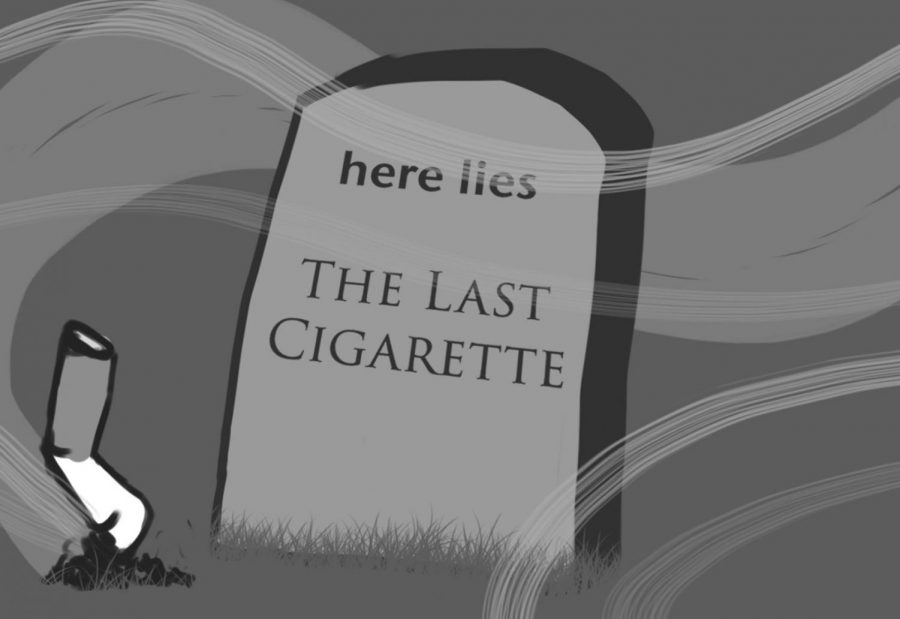Great American Smokeout helps smokers quit for life
November 19, 2014
Mark this date on your calendars, boys and girls: Thursday is the Great American Smokeout.
People throughout the nation accept the challenge by the American Cancer Society to put down their cigarettes — and any other form of tobacco — during the Great American Smokeout. Since the mid-’70s, this date has been a springboard for thousands of Americans to quit smoking entirely. For many, Thursday will be the first step in their success stories.
“I think it’s actually a really good idea and it could help a lot of people out,” said Austin Jessop, senior physical education K-12 major. “I’ve tried [to quit smoking before] … trying to take that initial step and … keep going with it. That’s the hardest part, just sticking to it.”
Smoking exposes your body to harmful chemicals that can damage cells. Smoking also decreases your ability to absorb antioxidants that counteract this damage and maintain cell health, according to Nutrition 411.
Heart disease, cancer and stroke are some of the risks of smoking that can be fatal. Overall, statistics show using tobacco causes “about 480,000 premature deaths each year,” according to the American Cancer Society.
“Many students who have had a health class in junior high and high school are aware of the risks,” said Donna Schoenfeld, director of Health Enhancement. But they don’t “necessarily believe that they are going to be one of the statistics … they just don’t believe they’re going to be impacted.”
The good news for smokers — especially for those who are still relatively young — is the body is particularly good at healing itself.
Recovery begins on day one: After just 20 minutes of ceasing to smoke, your heart rate and blood pressure drop. After 12 hours, the carbon monoxide level in your blood drops to normal. Your circulation and lung function begin to improve after just two weeks. After one month, coughing and shortness of breath will decrease and cilia will start to regain normal function in the lungs. After one year, your excess risk of heart disease is cut in half from a continuing smoker’s, and after five years, numerous cancer risks are also cut in half, according to the American Cancer Society.
While some people can quit cold turkey and have success, this isn’t the case for everyone.
“If you find that you … end up going out and having another cigarette, that’s normal. But, you wake up the next day and you quit again. So, quitting can take several times; [don’t] be discouraged,” Schoenfeld said.
Whether you’re trying to quit smoking or you know someone who is trying to quit, it’s important to stay patient and to keep a positive mindset — the results are life changing.
Quitting is a process and isn’t determined by a single action. You haven’t failed just because you haven’t been perfect. Progress is the name of the game and Thursday is a great time to start.







